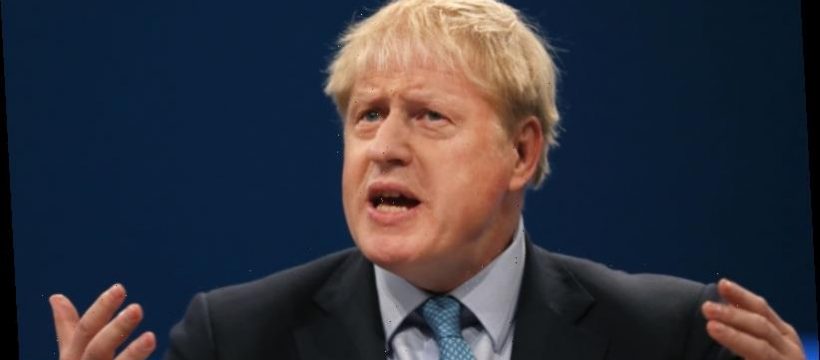It is every family's worst nightmare: a traffic accident that takes the life of a loved one, often through no fault of their own. Such incidents are usually an agonising, private tragedy for those involved. The allegations in the case of 19-year-old Harry Dunn, however, are a matter of transatlantic diplomacy and threaten to become an embarrassment to the British Prime Minister Boris Johnson.
Boris Johnson at the Conservative Party Conference on October 2.Credit:AP
They are also a reminder that diplomatic immunity is often used as a shield in ways that were never intended. Johnson, who once criticised the absurdity of the protections offered, can't let his voice be muffled this time by his need to keep the Americans onside after Brexit.
On August 27, Dunn's motorcycle collided head-on with a Volvo outside a US intelligence base about 120 kilometres north-west of London; he suffered multiple injuries and was later pronounced dead. Dunn's devastated family say they were told by police that they believe the Volvo driver was travelling on the wrong side of the road.
The driver of the vehicle, named as 42-year-old Anne Sacoolas, is the wife of a US diplomat who may have only been in the country for a short period. Police reported that she was co-operative initially and had no plans to leave the country. But after Dunn's death, Sacoolas claimed immunity and returned to the US with her family.
Harry Dunn, pictured, died in the crash near RAF Croughton.Credit:Facebook
The case has sparked outrage in the UK. Harry Dunn and his family have suffered the ultimate irreversible harm, but they seem to have no recourse at all. Under the 1961 Vienna Convention, diplomats and their families are protected from prosecution in their host country, though the principle dates back thousands of years.
Waivers of diplomatic immunity are, in practice, rare. Some years ago the Daily Telegraph revealed that the Metropolitan Police made 19 applications for such waivers in the five years to 2007 and most were rejected. A French diplomat accused of assault was sent home. Saudi officials escaped having to account for allegations of indecent assault and drug-dealing.
As London mayor, Johnson regularly criticised the US ambassador Robert Tuttle for failing to pay the city's daily £8 pound ($14) congestion charge over three years. On Monday Johnson broke his silence on Dunn, calling on the US embassy to waive immunity and saying he'd raise the issue with the White House personally. He treads a fine line. His predecessor Tony Blair never lived down accusations that he was George W. Bush's "poodle"; Johnson is struggling to appease Trump's sensitivities on Iran and Huawei, both areas where the UK disagrees with the President.
Brexit complicates things. Trump's promise of a US/UK trade deal has become a cornerstone of Johnson's promise that Brexit will be a success.
Were immunity to be lifted and Sacoolas found to have caused death by dangerous driving, she might not be sent to prison. Sentences of up to 14 years can be handed down if the offender is under the influence of drink or drugs. But the maximum custodial term for death by "careless or inconsiderate driving" is five years and that is reserved "for rare cases when the blame is exceptionally high". We're not likely to find out anyway.
Could there be a better system? The renowned trial lawyer Geoffrey Robertson has argued that countries should either waive immunity or submit to an international court in criminal cases, with judges from the involved nations.
"Any country that chooses to protect an embassy official against prosecution must be treated with the contempt it deserves: its ambassador should be carpeted, any aid budget reviewed and full details of charges and evidence released to the media," Robertson wrote nearly a decade ago.
It's hard to live up to such ideals when your entire post-Brexit strategy is about keeping one country happy.
Bloomberg
Source: Read Full Article


